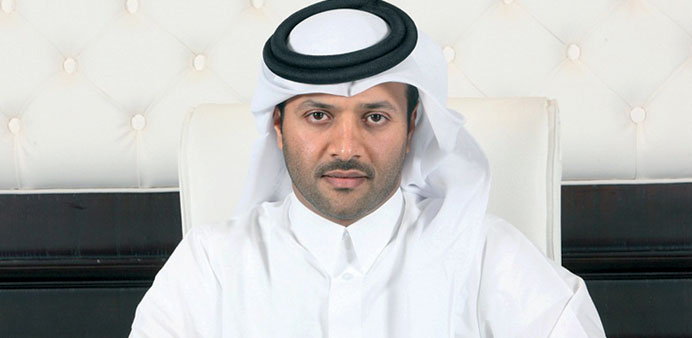The local production of chicken now covers only 12% of the market requirement
|
|
Mawashi (Qatar Company for Meat and Livestock Trading) is in the process of setting up a huge poultry farm in the country, which is expected to help meet a significant portion of the local market’s needs, it is learnt.
“The company has finalised a comprehensive study and submitted it to the competent entity to get a suitable piece of land and process the other requirements of such a huge project,” Ahmed Nasser Sraiya al-Kaabi, managing director and CEO of Mawashi, told Gulf Times in an interview.
He pointed out that the local production of chicken now covered only 12% of the market requirement and the rest was imported. Feasibility studies, he said, had suggested that a local farm could prove successful given the high demand. However, such a project entails various risks due to the fragile nature of poultry, which is vulnerable to diseases and contamination.
Al-Kaabi said he was assured of the success of the project despite the challenges. “The project will engage the most sophisticated technologies in the field and acquire the best equipment. Further, we will collaborate with international experts to apply the most successful practices based on global standards.”
The Mawashi CEO said the current management had assumed responsibility in 2010. “Since then, the company had achieved several successes and won various prestigious international awards, including the 16th International Star for Quality in Leadership Award in France in June 2012 and four other recognitions from MLA Australia for quality management.”
He stressed the strong presence of Mawashi in the local market as the company accounted for around 70% of red meat supply in the country. “Qatar hosts people of various nationalities with different tastes and preferences. So, we are trying to diversify our meat sources,” said al-Kaabi, adding that Mawashi’s meat imports came mainly from Australia, Georgia, Armenia, Kenya, Somalia, India and Pakistan.
Australian sheep, which are highly subsidised by the government, comprise a big share of Mawashi’s imports. Every month, the company imports around 60,000 live Australian sheep and 20,000 frozen carcasses. Al-Kaabi said this covered the local consumption on a daily basis and the meat was subsidised for all inhabitants of Qatar.
On price control, he said this was outside the company’s purview as importer and distributor, and was the domain of the Consumer Protection Department.
Mawashi has various overseas plans lined up, including opening an automated slaughterhouse in Australia. The details of the project are being studied. In Sudan, the company has already invested in fodder farms and plans to establish a slaughterhouse and a poultry farm.
Regarding the automated slaughterhouse in the Central Market area, al-Kaabi said it was up to the authorities concerned to relocate it. Besides, a new facility was under construction at Umm-Uwayna near the Industrial Area.
“The automatic slaughterhouse took us great investment to upgrade it and we equipped it with the best facilities up to the international standards. Also, it won a prize in 2011 from the Australian Organisation for the best developed slaughterhouse in the Middle East and North Africa Region,” he said.
Al-Kaabi also laid emphasis on the keenness of Mawashi to preserve the environment and avoid health hazards. For example, the company has shelved its plans to set up a leather tannery in Qatar due to the associated environmental concerns. “But the door is open for the project if we can arrive at a compact technology or structure that will help avoid such risks. Currently, we sell our leather produce for processing outside the country,” he said.
Among the pending projects of Mawashi is a meat processing plant, for which it has submitted related studies to the authorities and is awaiting the necessary approvals. There are also plans to invest in the fisheries sector.
Earlier, Mawashi had announced its financial results for the third quarter of 2012 with the net profit reaching QR62.1mn for the period ending September 30. It marked an increase of QR20.5mn over the same period last year when the firm registered a net profit of QR41.5mn.
To reflect its aspiration for further expansion in the meat market, it has been proposed that the company’s name be changed to Widam. The matter is subject to the approval of the board of directors. Widam, explained al-Kaabi, was a word that incorporated all types of meat that locals put on rice.

